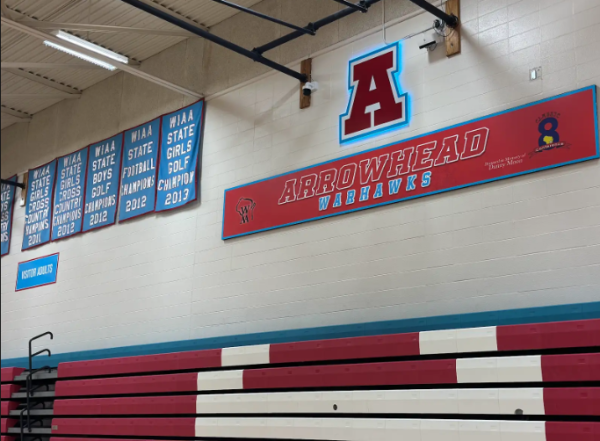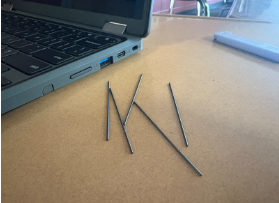Arrowhead Hosts Spring Blood Drive
Arrowhead High School’s Student Senate will be hosting a blood drive for the American Red Cross on Wednesday, April 28th from 7:45am to 11:45am. The event will take place in the North Campus West gym. Sign-up is available on the American Red Cross Blood Services website at https://www.redcrossblood.org/give.html/drive-results?zipSponsor=AHS.
“Student Senate’s blood drives are unique in that they run during a school day,” says Student Senate president Phoebe Frentzel.
Students over the age of 17 who reach certain weight requirements depending on height are able to sign up for a time slot. Donors can be excused from class during their donation time. Due to Covid-19, this year there will be no walk-ins. The process of donation usually takes between 45 and 60 minutes.
On April 28th, donors will check in outside the West gym before their appointment. Volunteers will then lead donors through the process of verifying whether or not they are a suitable donor before drawing blood. Afterwards, students will rest in the North Campus commons, which will be providing snacks and drinks.
All donors are eligible for incentives for donating blood, including coupons for Chick-fil-A or Culver’s, a tee-shirt, or a ten dollar gift card that can be redeemed anywhere.
Senior Evelyn Himburg said, “Blood is in critical need right now and everyone who can should try to give blood. It’s a quick and easy process. I donated blood yesterday. If you can’t make it to the school blood drive, check the Red Cross website for other dates.”
Donors can also receive Covid-19 blood antibody testing for free. There is no deferral for potential donors who have received the Covid-19 vaccine. For those who are already vaccinated, the CDC does not recommend antibody testing to assess immunity, since there are various types of antibodies that do not all show up on a single antibody test.
Donors must bring proof of age to donate blood. This includes either one form of primary ID, such as a driver’s license or passport, or two forms of secondary ID, such as a social security card or birth certificate. If student donors do not have the appropriate forms of identification, they may still be eligible. Student age may be verified by school officials or adult volunteers.
Frentzel says, “Every day, blood donors help patients of all ages: accident and burn victims, heart surgery and organ transplant patients, and those battling cancer. Every two seconds, someone in the U.S. needs blood!”





